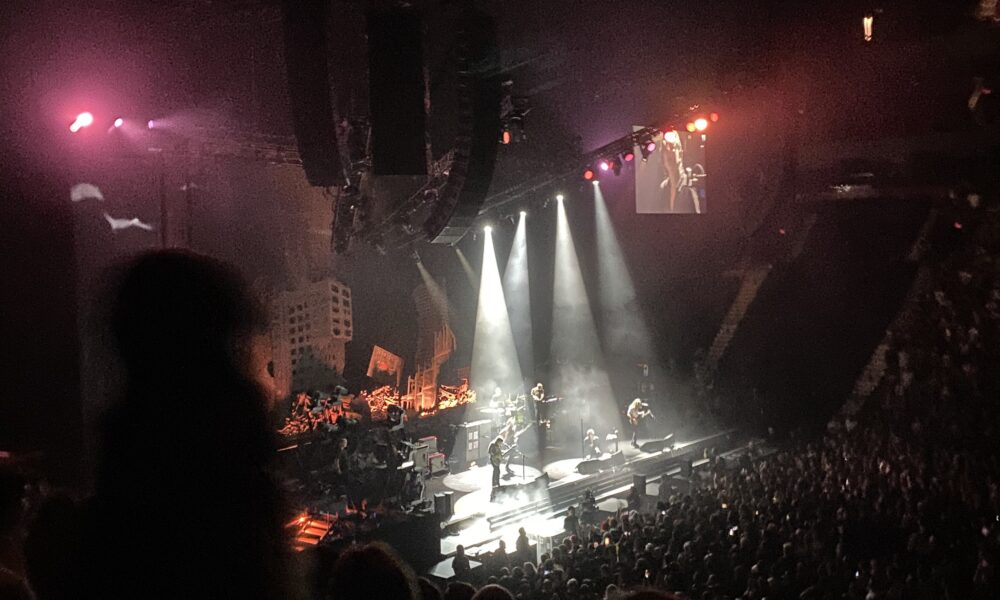Montreal is often overlooked when it comes to big-name concert tours. Despite its vibrant music scene and energetic crowds, many artists don’t think to stop in Montreal when booking their Canadian tour stops. Meanwhile, cities like Toronto and Vancouver are popular tour destinations. What do other cities have to offer that Montreal does not?
Popular artists such as Olivia Rodrigo have commented on the electrifying energy and enthusiasm that Montreal’s crowds bring to a show. The city also hosts a wide variety of concerts and festivals, from techno events such as Piknic Électronik, to the annual Montreal Jazz Festival, to festivals highlighting Francophone artists, demonstrating that there is an audience for any artist, regardless of style or genre.
Montreal hosts millions of spectators every year at these festivals, and their popularity is only expanding over time. However, the city’s enthusiasm for its music scene extends beyond festivals; local scene bands, live music in bars, and concerts by big and small artists alike captivate its residents year-round. It is this open-mindedness and vast interest in live music that makes Montreal a city eager to receive larger artists.
Furthermore, Montreal’s geographic location is ideal for hosting out-of-town audiences from smaller cities in Eastern Canada and even those from the U.S., in places like Boston and New York City. While it might seem far to have to travel from Montreal to Toronto to see a popular artist or band perform live, it is nothing compared to the distances those who live in Quebec City, or even in the Maritimes, must travel. Such trips are long, pricey, and often unfeasible for the average concert-goer. By adding tour stops in Montreal, top-tier artists can increase accessibility for fans across Canada.
In general, Montreal is a more affordable city than Toronto, with prices being on average 10 per cent lower. For the artist, this can mean spending less on venue rental fees and on hiring production staff. For the audience, it means that finding transportation, lodging, and food won’t be as costly, leaving more of their budget for the concert tickets themselves. This price difference between the two cities can be reflected in ticket prices as well.
Montreal is likewise well-adapted and accustomed to hosting substantial crowds while still offering reliable services. The city is home to Place des Arts, a large concert hall located in the Quartier des Spectacles, which has a total capacity of 8000 seats and hosts many performances and artists every year.
Centre Bell is another notable venue that can welcome bigger artists. The recent Charli XCX and Troye Sivan Sweat Tour held in this arena transformed the space’s stage with different light displays and impressive set pieces made of scaffolding. The result was an outstanding experience for the fans, and it illustrated the city’s ability to organise thrilling and remarkable concerts. This makes Montreal a city capable of—and accustomed to—organising distinguished cultural events.
Not only does Montreal have the capacity to coordinate important concerts for bigger artists, but its population is also adapted and open to them. With a metro area population of 4,342,000 people in 2023, Montreal is the second largest city in Canada—and inhabitants aged 25 to 34 years old are the city’s largest age group. Younger people tend to attend more concerts as they are usually up-to-date on trendy artists and follow pop culture through social media. The social aspect of concerts also tends to appeal more to younger generations, making them the perfect target audience for big tours.
Montreal’s demographics, its location, its passion for live music, and its ability to organise larger events while maintaining a reasonable price for its services make it a hidden hosting gem for the worldwide famous artists that tend to overlook this city.









